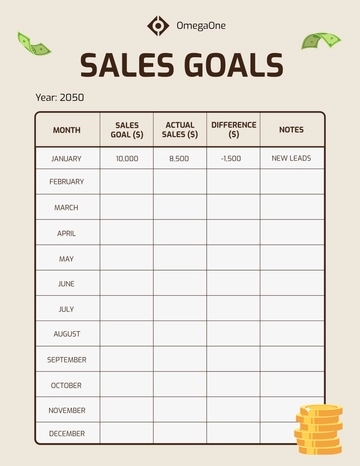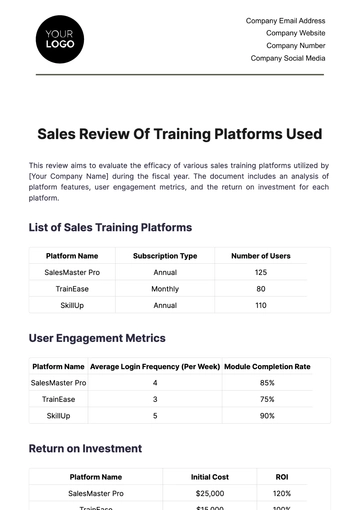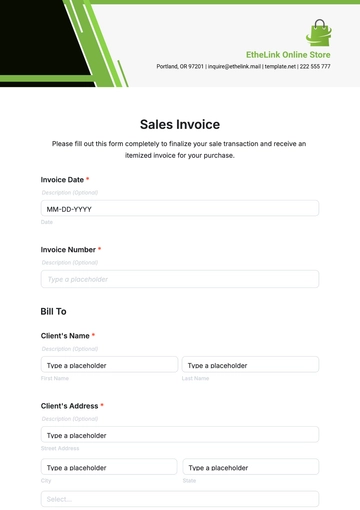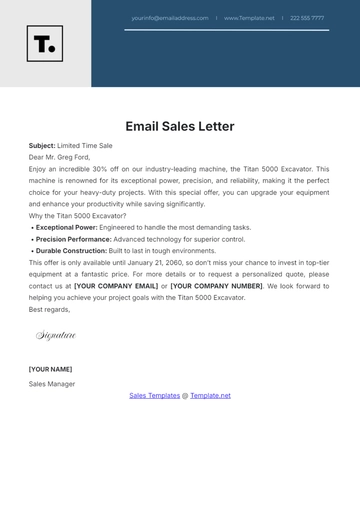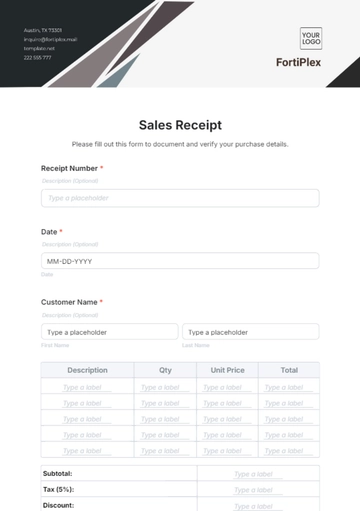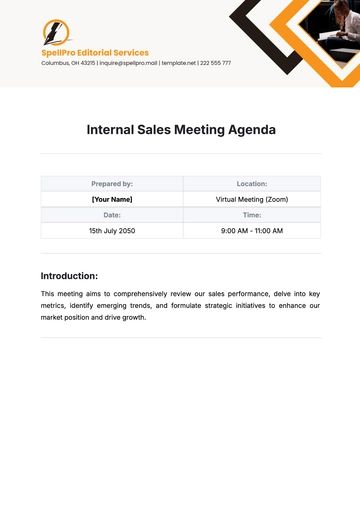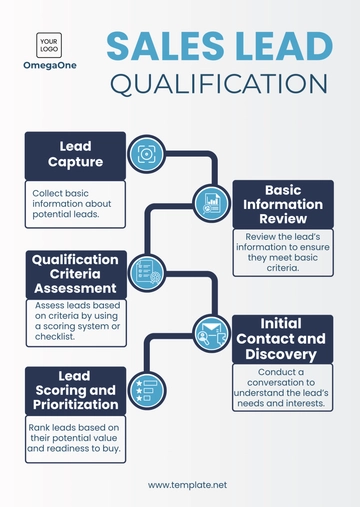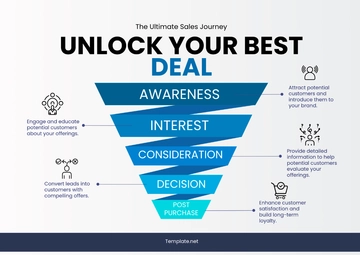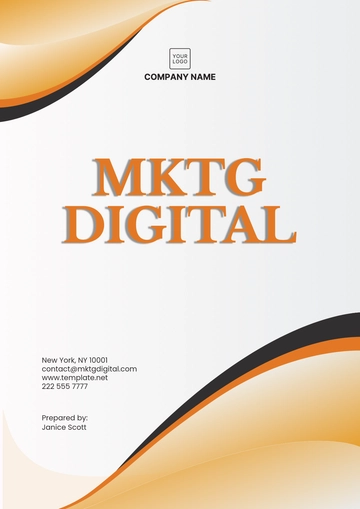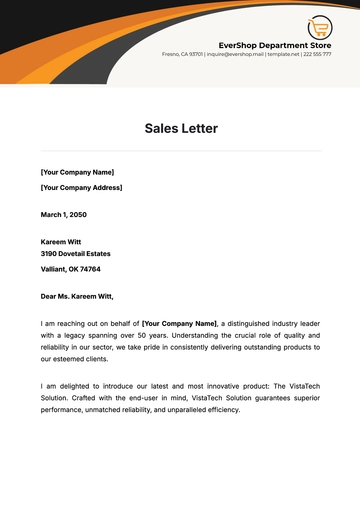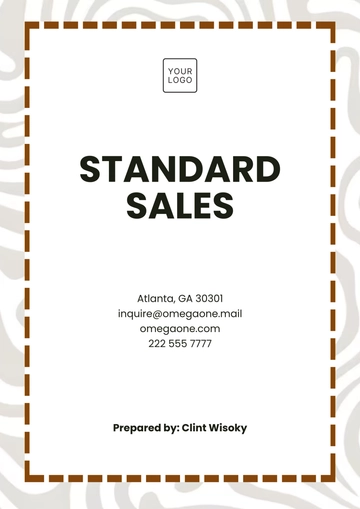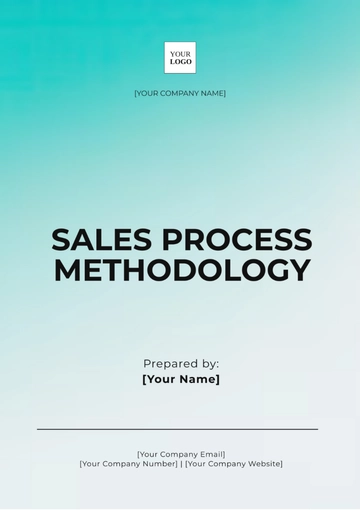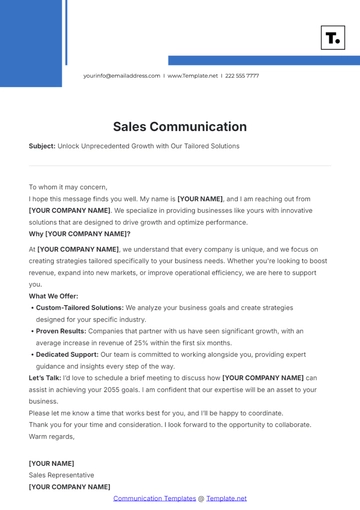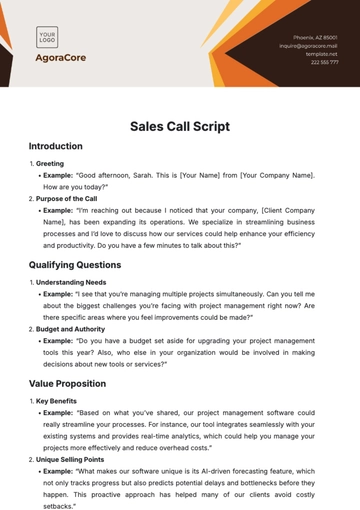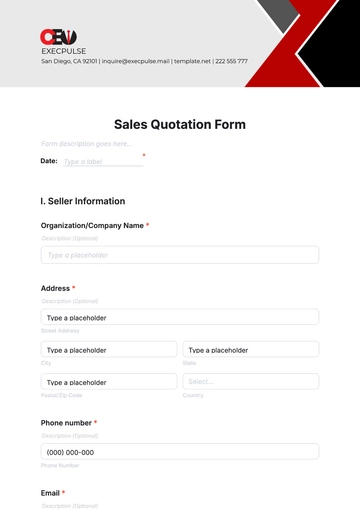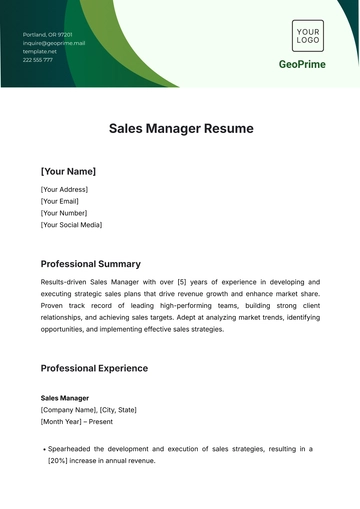Free Sales Account Manager's Code of Conduct and Protocol
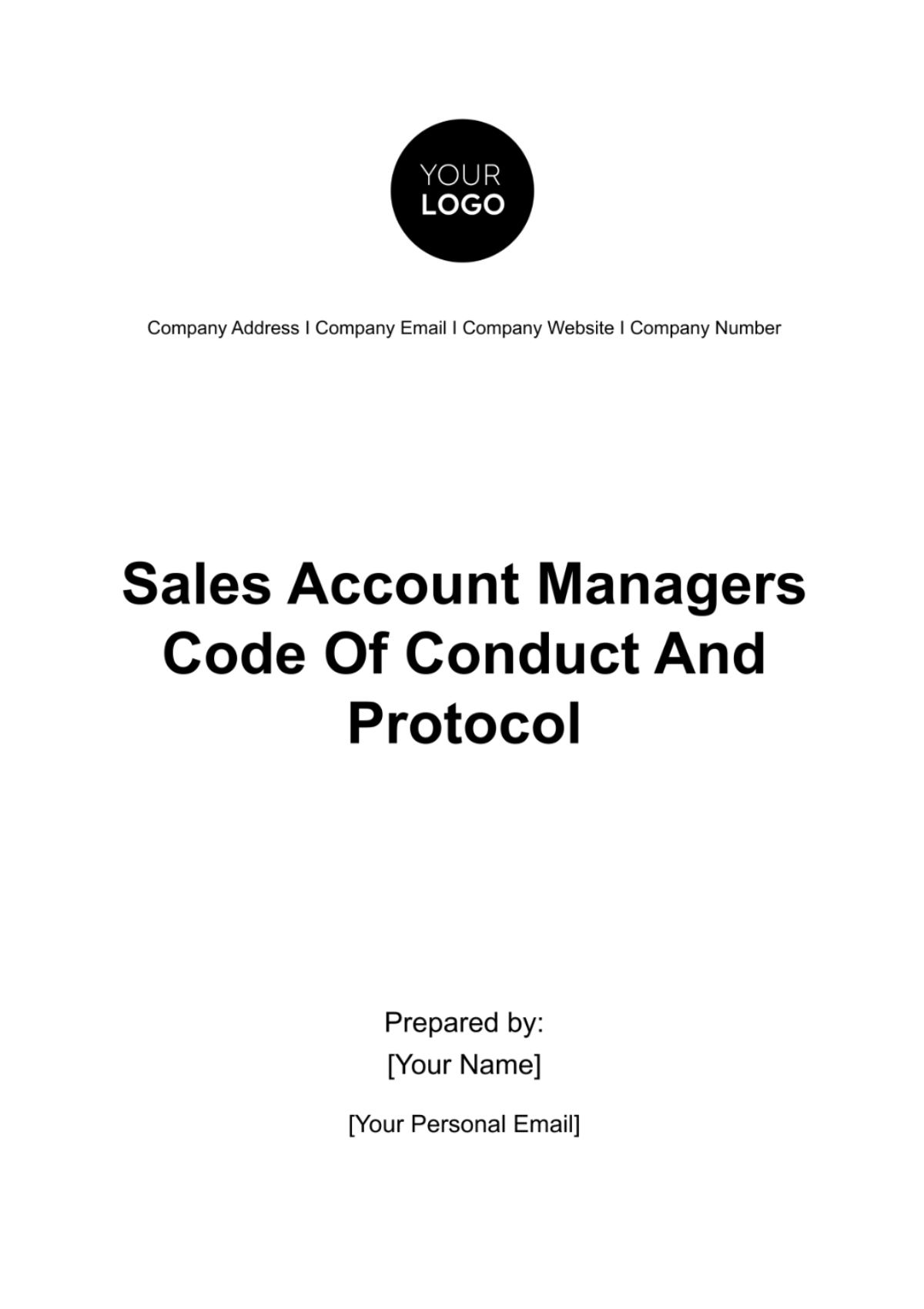
EXECUTIVE SUMMARY
In a rapidly evolving business landscape, the role of Sales Account Managers has never been more critical. This document aims to provide a comprehensive framework for guiding our dedicated account managers within [Your Company Name] and, by extension, professionals across a diverse spectrum of industries.
Account managers are at the forefront of building and nurturing client relationships, which are the lifeblood of any successful enterprise. In this code, we emphasize the significance of upholding ethical standards and delivering exceptional service. By setting clear expectations for conduct, we endeavor to enhance client satisfaction, maintain the trust they have placed in us, and foster consistent, high-quality interactions.
The framework outlined within this document is rooted in a deep commitment to our core values of integrity, client-centricity, and confidentiality. These values serve as guiding stars, directing account managers in their daily operations. Integrity dictates that honesty and transparency underpin all client interactions. Our client-centric approach ensures that we prioritize our clients' needs and goals above all else. Moreover, confidentiality underscores our commitment to safeguarding sensitive client information and maintaining the utmost discretion in our dealings.
By establishing this Code of Conduct and Protocol, [Your Company Name] reaffirms its dedication to ethical and professional practices. This commitment will not only strengthen our relationships with clients but also elevate our position as a trusted partner in their journey to success.
INTRODUCTION
This Sales Account Manager's Code of Conduct and Protocol plays a pivotal role in preserving these values and ensuring consistent, high-quality interactions with our clients.
This framework exists not merely as a set of rules but as a reflection of our corporate identity. It encapsulates the spirit of [Your Company Name], aligning it with the broader vision of a business world where strong and ethical client relationships are paramount. Our account managers are entrusted with the responsibility of being the face of the company, the bridge between our offerings and the unique needs of our clients. This code is designed to be their compass, guiding them in their daily endeavors.
CORE VALUES AND ETHICAL PRINCIPLES
At [Your Company Name], our success is built upon a foundation of unwavering core values and ethical principles. These values serve as the guiding light for our Account Managers, ensuring that our client relationships are nurtured with integrity, transparency, and a commitment to ethical behavior.
CORE VALUE | DESCRIPTION |
|---|---|
Integrity | Integrity is paramount. We are committed to honesty, transparency, and ethical conduct in all client interactions. We will not engage in deceptive practices or compromise our principles for personal gain. |
Client-Centric Approach | This means that we put clients' interests first. We work diligently to understand their unique needs, expectations, and business goals, and tailor our services to meet and exceed them. |
Confidentiality | We safeguard sensitive client information with the utmost care and discretion, ensuring that it is not shared, mishandled, or exposed to unauthorized parties. |
Professionalism | We maintain a respectful and courteous demeanor in all interactions, communicating clearly, concisely, and effectively. Our commitment to professionalism extends to appearance, communication, and conduct. |
Ethical Sales Practices | We follow ethical sales practices, including full disclosure of our products and services, and avoid deceptive sales tactics or misleading promises. |
Accountability | We hold ourselves accountable for our actions, honoring commitments to clients and taking responsibility for mistakes or misunderstandings, working promptly to rectify them. |
In embracing these core values and ethical principles, [Your Company Name]'s Account Managers commit to upholding the reputation, trust, and success of our clients and our organization.
ACCOUNT MANAGER RESPONSIBILITIES
Account Managers at [Your Company Name] are the driving force behind our client-centric approach. Their dedication and competence are essential for the success of our clients and the growth of our business. As stewards of our client relationships, they bear significant responsibilities:
Client Relationship Development:
Building Strong Relationships: Account Managers are tasked with cultivating strong, long-lasting relationships with clients. This entails regular communication, understanding their needs, and ensuring they receive a high level of service at all times.
Customized Solutions: They must identify each client's unique needs and tailor our solutions to meet those needs effectively. This involves working closely with other departments to ensure the delivery of value-added services.
Maximizing Client Satisfaction:
Client Satisfaction: Account Managers are entrusted with ensuring that our clients are not just satisfied but delighted with our services. They must proactively seek feedback and address any concerns promptly.
Client Education: Educating clients on new product features and industry best practices helps them derive maximum value from their partnership with us.
Revenue Growth and Service Enhancement:
Identifying Growth Opportunities: Beyond managing existing accounts, Account Managers are responsible for identifying upsell and cross-sell opportunities. They must analyze client accounts to spot areas where our services can further benefit them.
Service Improvement: In addition to upselling, Account Managers play a crucial role in providing feedback to our product and service development teams. Their insights from the client's perspective guide continuous improvement.
CLIENT RELATIONSHIP MANAGEMENT
Building and maintaining strong client relationships not only ensures client satisfaction but also fosters trust, loyalty, and long-term partnerships. Here are the key principles and practices for client relationship management:
Build Trust Through Active Listening
Listening is the foundation of any successful client relationship. Our account managers are trained to actively listen to our clients, seeking to understand their needs, concerns, and expectations. By giving clients a voice and demonstrating that we value their input, we build trust from the very beginning.
Regularly Assess Client Needs
Client needs can change over time, and it's our responsibility to stay attuned to those changes. We periodically assess our client's evolving needs and preferences. This includes conducting surveys, holding feedback sessions, and performing client satisfaction check-ins. By staying proactive, we can adapt our services to meet their current requirements.
Personalized Support
We understand that every client is unique, with specific goals and challenges. Therefore, our account managers provide personalized support tailored to each client's individual needs. This approach involves customizing our services, addressing specific pain points, and offering solutions that align with their business objectives.
Commitment to Client Success
Our account managers are more than just service providers; they are committed partners in our client's success. They actively seek opportunities to add value to the client's business. Whether it's identifying potential cost-saving measures, suggesting product enhancements, or proposing new strategies, we aim to contribute to the client's growth and success.
Proactive Communication
Effective communication is key to maintaining strong client relationships. We ensure our account managers are responsive and provide timely updates and feedback. Proactive communication helps prevent misunderstandings, assures the client that they are a priority, and contributes to a positive client experience.
Managing Expectations
Setting and managing client expectations are fundamental to a successful relationship. We make it a point to be transparent about what clients can expect from our services, including deliverables, timelines, and potential challenges. By establishing clear expectations from the outset, we minimize the likelihood of disputes or misunderstandings.
Conflict Resolution
In any relationship, conflicts may arise. When they do, our account managers are trained to handle them professionally and constructively. Conflict resolution involves addressing issues promptly, seeking feedback, understanding the client's perspective, and striving for mutually beneficial solutions. By approaching conflicts with a problem-solving mindset, we maintain healthy, enduring relationships.
COMMUNICATION PROTOCOL
This protocol encompasses the following principles:
Responsiveness and Timeliness
Prompt Responses: We acknowledge all client inquiries and messages as soon as possible. Even if we do not have an immediate answer, we acknowledge receipt and provide a timeline for a more detailed response.
Timely Follow-up: When we promise to follow up or provide updates, we adhere to the communicated timeline. Punctuality reflects our dedication to our clients.
Clear and Professional Communication
Clarity: Our communications are clear, concise, and free of jargon. We ensure that our clients fully understand the information we provide.
Professional Tone: We maintain a professional and respectful tone in all interactions, both written and verbal.
Keeping Clients Informed
Proactive Updates: We provide regular updates on projects, services, or any relevant changes that may affect the client. Transparency is key to maintaining trust.
Educating Clients: Where necessary, we take the initiative to educate clients about industry trends, best practices, and how our services can benefit them.
Adhering to Preferred Communication Channels
Understanding Preferences: We respect our clients' preferred communication channels, whether it's email, phone calls, video conferences, or in-person meetings.
Consistency: Once communication channels are established, we maintain consistency, unless the client requests a change.
Documenting and Archiving
Accurate Record-keeping: We diligently document all client interactions, agreements, and important discussions to ensure a clear historical record.
Archiving: We securely archive all communication records, ensuring they are easily accessible when needed.
Handling Confidential Information
Data Security: We handle sensitive client information with the utmost care, ensuring compliance with all data protection and privacy regulations.
Confidentiality Agreements: When necessary, we are prepared to sign confidentiality agreements to provide additional assurance to our clients.
CONFLICT RESOLUTION
Principles of Conflict Resolution:
Prompt Action: Address conflicts as soon as they arise. Timely intervention prevents misunderstandings from escalating.
Active Listening: Actively listen to the client's concerns. Understand their perspective and validate their feelings.
Solution-Oriented: Focus on finding solutions rather than assigning blame. Approach conflicts as opportunities for improvement.
Win-Win Approach: Strive for mutually beneficial resolutions where both parties feel their interests have been served.
Steps for Conflict Resolution:
Identify the Issue: Clearly define the problem or disagreement. Ensure everyone involved has a shared understanding of the conflict.
Gather Information: Collect all relevant information and facts related to the conflict. This might involve reviewing communications, agreements, or client history.
Initiate a Conversation: Approach the client to discuss the conflict. Choose an appropriate method of communication, which may include a phone call, video conference, or an in-person meeting.
Active Listening: Allow the client to express their concerns without interruption. Show empathy and understanding.
Clarify and Confirm: Restate the client's concerns to confirm your understanding. Seek their agreement on the issues discussed.
Seek Common Ground: Collaboratively explore potential solutions. Look for areas of agreement and build on them.
Propose Solutions: Suggest potential resolutions to the conflict. These solutions should align with the client's interests and your organization's capabilities.
Agree on Action Steps: Once a solution is agreed upon, outline the specific action steps and responsibilities for both parties. Set realistic timelines for implementation.
Follow-Up: Regularly check in with the client to ensure the resolution is proceeding as planned. This shows your commitment to their satisfaction.
Documentation: Maintain thorough records of the conflict, discussions, and agreed-upon solutions. This documentation serves as a reference for future interactions.
By adhering to these conflict resolution principles and steps, [Your Company Name]’s Account Managers ensure that clients perceive us as proactive, responsive, and genuinely concerned about their needs.
REPORTING AND COMPLIANCE
The following points outline the key aspects of reporting and compliance that our Account Managers should diligently adhere to:
Accurate Records and Reports
Account Managers are expected to maintain meticulous records of all client interactions, agreements, and transactions. These records must be accurate, complete, and up-to-date. These records serve as an essential historical reference and a safeguard against disputes or misunderstandings.
Data Security and Confidentiality
Account Managers must handle sensitive client information and data with the utmost care and discretion. Protecting client confidentiality is paramount, and Account Managers should follow established data security protocols to ensure the safekeeping of all client-related information.
Regulatory Compliance
We operate in a complex business environment with various regulations and standards governing our industry. Account Managers should remain informed about these regulations, ensuring that all client interactions and transactions are fully compliant with relevant legal and industry requirements. Non-compliance could jeopardize our client relationships and the company's reputation.
Reporting Consistency
Consistency in reporting practices is vital for our clients' understanding and trust. All reports should adhere to a standard format and include the necessary details. Any deviation from these standards should be adequately explained to the client, promoting transparency.
Documentation of Agreements
All agreements, including contracts, proposals, and changes in service scope, should be documented in writing and signed by both parties. This documentation is crucial to avoid misunderstandings and disputes and to ensure that all parties fully comprehend the terms of the agreement.
BEST PRACTICES
Account Managers at [Your Company Name] are expected to uphold the highest standards of client engagement. To achieve this, we emphasize a set of best practices:
Client-Centric Approach:
Client Advocacy: Act as the client's primary point of contact within the company, representing their needs, preferences, and objectives.
Proactive Service: Anticipate client requirements and provide solutions before they are even requested.
Regular Check-Ins: Schedule periodic meetings to review client satisfaction, identify pain points, and ensure their objectives are being met.
In-Depth Understanding:
Client's Business: Gain a profound understanding of the client's industry, business model, and challenges. This knowledge helps in tailoring solutions to their unique needs.
Competitor Awareness: Stay informed about the client's competitors and market dynamics, offering insights and strategies that keep them competitive.
Ongoing Value Creation:
Service Enhancement: Continually seek ways to improve and enhance the services or products offered to clients.
Innovation: Identify opportunities to introduce new services or products that align with the client's evolving needs.
Feedback Integration:
Feedback Solicitation: Actively seek feedback from clients on our services, responsiveness, and areas for improvement.
Feedback Implementation: Use client input to drive meaningful changes, demonstrating our commitment to their satisfaction.
Cross-Functional Collaboration:
Internal Advocacy: Champion the client's interests within the organization, collaborating with other departments to resolve issues and deliver exceptional service.
Internal Expertise: Leverage the knowledge and expertise of colleagues across departments to provide comprehensive solutions to clients.
CONCLUSION
In conclusion, this Sales Account Manager's Code of Conduct and Protocol is more than just a set of rules and guidelines; it is the embodiment of our commitment to our clients and our unwavering dedication to professionalism and excellence. As account managers, we are entrusted with the crucial responsibility of nurturing and sustaining client relationships that are not only built on trust but also drive our organization's growth and success.
Ultimately, our commitment to these best practices enhances not only our relationships with our clients but also our own professional growth and the success of [Your Company Name]. This document is a testament to our dedication to providing exceptional service and building long-lasting, mutually beneficial relationships.
- 100% Customizable, free editor
- Access 1 Million+ Templates, photo’s & graphics
- Download or share as a template
- Click and replace photos, graphics, text, backgrounds
- Resize, crop, AI write & more
- Access advanced editor
Presenting Template.net’s Sales Account Manager's Code of Conduct and Protocol template—a versatile guide designed to uphold ethical and professional standards for account managers in a dynamic business landscape. Available via our AI Editor Tool, this editable and customizable template ensures trust, client-centricity, and growth while upholding values and compliance in all client interactions.





